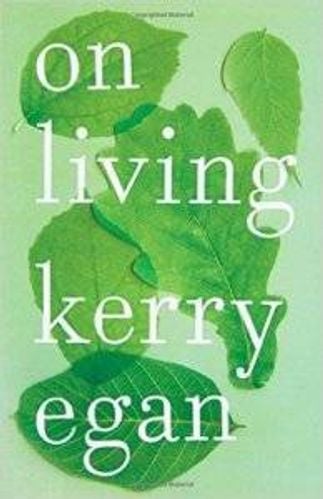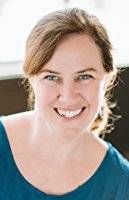Hospice Chaplain Writes About Her Talks With the Dying
What she heard was unexpected, the 'On Living' author says
We humans are both fascinated by and fearful of death. The fear often keeps us at arms’ length from the dying, even when they are those we’ve held closest in life.
Kerry Egan’s job as a hospice chaplain in Massachusetts was to be present for those in their last days, weeks or months — to touch them, talk with them and, most of all, to listen.
Egan’s new book, On Living, recounts what she learned from her many patients. It is a slender volume that is nevertheless packed with wisdom, warmth and inspiration by the Harvard Divinity School grad.

Next Avenue talked recently with Egan about the book and her work. What follows is a condensed version of our conversation:
Next Avenue: You worked for years as a hospice chaplain. What do people talk to you about at the end of their lives?
Kerry Egan: They talk about their families. I wasn't asking them specifically about their families; that was what they chose to talk about.
These were people who had asked to see the chaplain, so you might think they're going to want to talk about God, or they're going to want to talk about theology or doctrine. It took me a while to understand that talking about their family and their relationships within their family, their love relationships, was their way of trying to understand these larger spiritual questions.
We're all meaning-making creatures. All our lives, this is what we're doing, whether or not we realize it. If you think of these big spiritual questions — why am I here, what does it all mean, why am I suffering now? — those are really hard questions, and so we tend as human beings to want to talk about the abstract by thinking about concrete examples.
When we talk about God as love, it's really natural for people to think: What have my experiences of love been? And what do those experiences, good and bad, teach me about God?
Have you encountered people who say they have seen or talked to the dead?
Yes, of course. I would be shocked if there was anybody who worked in hospice for more than a year who said, 'Never heard of it.' It's really very common. It does not happen for every person and with every death, but it happens a lot.
Usually, in my experience, people have seen their mothers. Their mothers come to the side of the bed or the end of the bed. Sometimes they hover above the bed.
That can happen weeks before someone dies, months before someone dies. And it's very comforting. Hugely comforting. For a lot of people, especially if you had a good relationship with your mom, the idea that the woman who brought you into this world will bring you into the next world, that's comforting.
Is there one story about a 'vision' that stands out?

One of my favorite stories, and it's in the book, is a woman who had a vision that her mom kept coming to visit her. One day, her mom was there with a strange woman and her mom and the strange woman were holding hands. She didn't know what it meant.
But then she told me she had been looking through an old photo album with her daughter, really old photos, and they came across a picture of her birth mother's wedding portrait. She said it's the only portrait she had of her birth mother.
She said, 'My birth mother died giving birth to me, and so the person I keep talking about as my mom was technically my stepmother. She married my dad when I was 2 and I have no memory of life without her. And she was the one who kept coming to visit me. And I realized when I was flipping through this old photo album with my daughter that the person she's holding hands with is my birth mother. So the woman who raised me and the woman who gave birth to me were holding hands, waiting for me.'
What message do you hope people take away from the book?
A couple of messages. One: People who are dying and people who are caring for people who are dying are just normal human beings.
In our culture we have such a fear of death, and that bleeds over to people who are in the process of dying. And how very awful it must be to be doing this frightening thing — not everybody is frightened, but some are — and really want your friends and family to be with you. You're lonely and you don't feel good and you're sick and you want the people you love to be with you and they’re afraid of you.
I hope people reading the book will come to this realization that there is nothing to be afraid of when people are dying. They are not scary. I'm having these really great funny, fascinating, wonderful conversations with them. And the caregivers of people who are dying are not saints or angels. They are just regular people, too, who also need you.
If you're afraid, that's fine, but get over it and show up.
Another message: So often, we judge people on what we see, and we work very hard at portraying a certain image to the world. But what you see is not even a smidge of the entirety of that person. People have these layers, people have histories. Every single person has been through some really hard thing in their lives. [Don’t] be so judgmental; be a little bit more kind and caring. Don't be so quick to shame other people.
What have you learned in your work with the dying?
People can experience really difficult things in their lives and still have a good life. People can go through really terrible things, real trauma, real loss and still find meaning and even joy.
It’s important to know if other people have done found meaning and joy, it is possible. You might need help doing it, but that's what we're there for for each other — to give each other that help when we need it.


